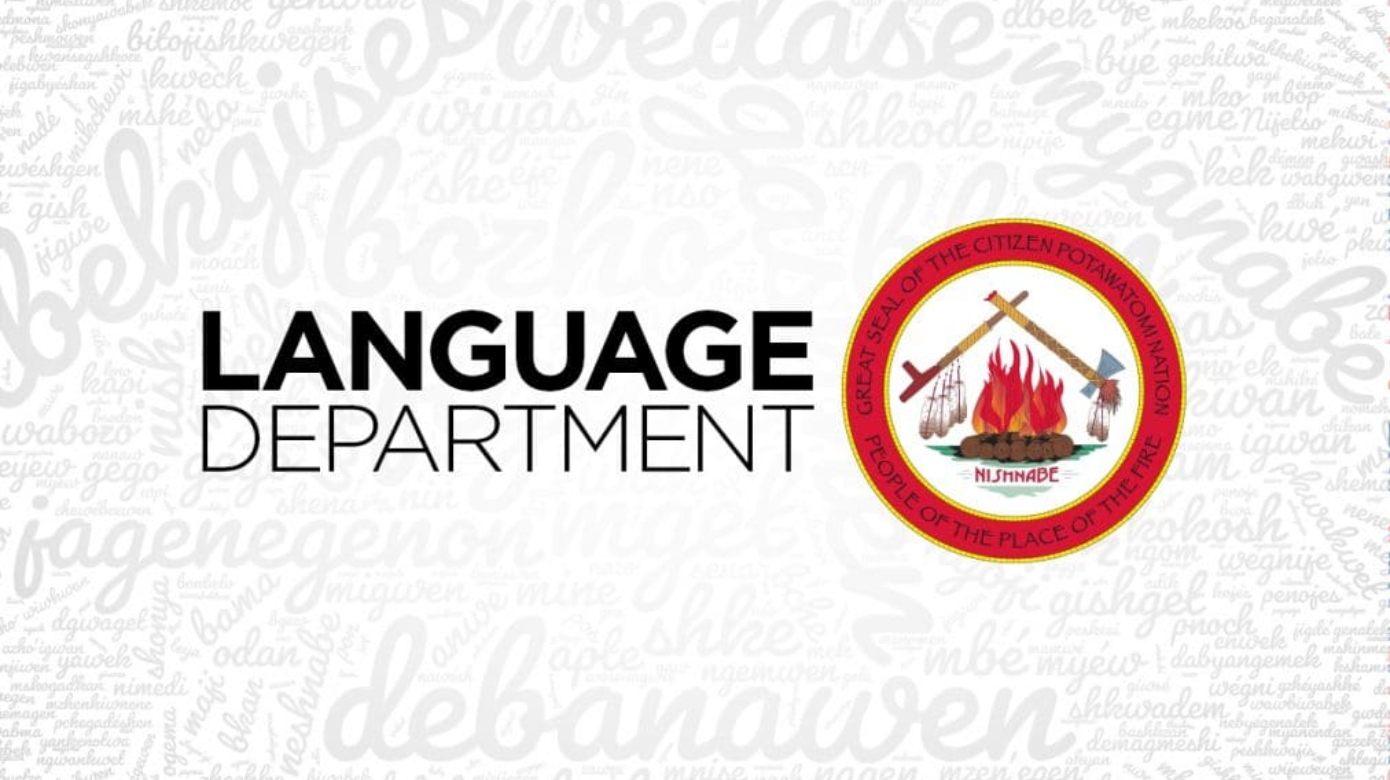By Justin Neely, CPN Language Department Director
Bozho Jayek, (Hello everyone),
As we head into June, we will be getting ready for Festival. We also have a group of folks with us for an eight-week immersion starting May 13. There will be three apprentices and then four language staff as part of the group. We also have several people who asked if they could join us for a week or two depending on their availability. The more the merrier within reason. So, we should have three to four folks auditing the course. The first week we will be dealing with VAI verbs/basic background, followed by VII verbs in Week 2, VTI verbs in Week 3 and VTA verbs in Week 4. Each week we will be doing conversational skits, cultural activities and listening drills. In weeks 5-8 we will mostly be doing conversational drills, listening drills with TPRS type stories etc. We will try to go live for a few different times each week when possible so that folks can join in with us from all over the United States and world.
For Festival this year we are going to do a series of riddles instead of the scavenger hunt. But this is something we will make available for folks to do regardless of where they live. We will post it in our Potawatomi Language Facebook group. We will also have a number of classes — some for beginners, intermediate level and also for kids — as well as our very popular Potawatomi Bingo.
In the bags this year we will be putting a magnet for your refrigerator with common phrases to use in the kitchen that will also have QR codes on it. We also plan on including some common phrases which will also have a QR code for you to listen to them. Also, we have several books left from our previous grant so we will be putting in different books in the language for you with — you guessed it — QR codes in the back which will read the book to you.
Here is a short sample of those common expressions for you to try out:
Mno magwet — It smells good. (minoh mahg wit)
Mnopkwet ne? — Does it taste good? (minope quit nay)
Mnopkwet — It tastes good. (minope quit)
Ggashknabegwe ne? — Are you thirsty? (guh gash knah bagway nay)
Bgeji — A little bit (buh geh gee)
Konege — Yes (cone nuh gay)
Dokem — Quiet (doe kum)
Wijeweshen — Come with me. (wee juh way shin)
Neyap byan — Come back. (nay yap bee yan)
Nasena — Be careful (nah sin nah)
Nekshe ebmoseyen — Look where you are walking. (nukshay be moe say yin)
Nizanet — It’s dangerous. (knee zan it)
Wi gmowen — It’s going to rain. (week mow in)
Wi gmowen ne? — Is it going to rain? (week mow in nay)
Mno gishget — It’s a nice/beautiful day. (mino geesh git)
Wi mno gishget — It’s going to be a nice day. (wee mino geesh git)
Ggi mno mba ne? — Did you sleep well? (geem nome bah nay)
Konege ngi mno mba — Yes, I slept well. (cone nuh gay ngeem nome ba)
Byé-wisnen — Come eat. (bee yah wees nin)
Byé-wisnek — Come eat (plural) (bee yah wees nuck)
Jigwek bmosewat — The thunders are walking. (geeg weck buh moe say wat)
(Old saying to indicate the thunders/a storm has approached.)
Gmikwénmego — You are remembered/thought of. (guh meek win muh go)
(Said when someone sneezes.)
Migwetch (Thank you)

